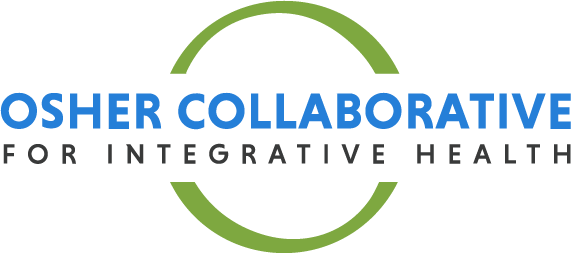Frequently Asked Questions
Nutrition for People with Rheumatic Diseases
Should I eliminate gluten?
There is very little information on gluten, rheumatoid arthritis (RA), and systemic lupus erythematosis (SLE) from clinical trials. RA patients assigned to a vegan, gluten-free diet for 1 year had slightly better RA disease activity after 1 year than those assigned to a non-vegan diet [1]. However, it’s not possible to know if this was due to the diet being gluten-free or vegan or both. The vegan, gluten-free diet included vegetables, root vegetables, nuts, fruit, buckwheat, millet, corn, rice, sunflower seeds, and sesame milk.
Another randomized trial of RA patients involved testing a diet with three different phases: fasting for 7-10 days, followed by a vegan/gluten-free diet for 3 months, followed by 9 months of a vegetarian diet [2]. During the fasting phase, dietary intake consisted of herbal teas, garlic, vegetable broth, a liquid extraction from potatoes and parsley, and juice from carrots, beets, and celery. No fruit juices were allowed. During the vegan/gluten-free phase, the diet excluded gluten, meat, fish, eggs, dairy, refined sugar, and citrus fruits. During the vegetarian phase participants did not eat meat and fish but they could eat gluten and dairy.
After the first 4 weeks of the trial (which included the fasting phase and the vegan, gluten-free phase), patients with RA in the special diet group had fewer tender and swollen joints, lower pain scores, and lower levels on inflammatory blood tests (ESR and CRP) compared to the RA patients who continued to eat their normal diet. The improvement in RA symptoms lasted even after participants were back to eating gluten and until the end of the trial, so it is more likely that being vegetarian, as opposed to being gluten-free, was the main driver of improvement.
Should I eliminate sugar?
Despite popular interest, there are no clinical trials on the impact of sugar on RA or SLE. However, eating excessive amounts of sugar is known to contribute to obesity, and obesity is associated with worse RA and SLE disease activity in a number of studies [3-5]. A diet low in added sugars is likely to reduce inflammation in RA and SLE by reducing the risk of obesity, and by preventing large spikes in blood sugar over the course of the day. Eating less added sugar also reduces the risk of diabetes, which is more common in people treated with prednisone, a common medication used to reduce RA and SLE symptoms.
Should I eliminate dairy?
Clinical trials have not studied whether dairy specifically can worsen RA or SLE symptoms. Vegan diets – which eliminate all animal products, including meat, fish, eggs, and dairy – have shown possible benefits for RA. For example, one trial found possible benefits after 1 year of adhering to a vegan, gluten-free diet [1], as described under the FAQ for gluten. Another trial found that patients reported less joint pain and swelling after 3 months of an uncooked vegan diet. Patients in the vegan diet group also lost weight during the trial [6]. The uncooked vegan diet included a fermented wheat drink, which is the water phase of germinated wheat seeds and water (fermented for 48 hours with freshly cut wheat grass). A substantial portion of patients had to stop the diet earlier than planned due to nausea, diarrhea, or dislike of the taste of some food items.
Should I eliminate meat?
Please see FAQs for “gluten” and “dairy” for studies of vegan and vegetarian diets.
Should I eliminate nightshades?
Nightshade vegetables include tomatoes, eggplants, bell peppers, and potatoes, and contain an alkaloid molecule called solanine (a glycoalkaloid). Some people believe that solanine in nightshade vegetables can causes inflammation in the gut (including increased intestinal permeability) [7], but there is no research to support that solanine has a direct effect on inflammation or arthritis pain. Furthermore, since nightshades include foods that are otherwise considered healthy, we do not recommend eliminating nightshades unless you have a food intolerance or food allergy to them.
What is the benefit of omega-3 supplements?
Some people prefer to increase consumption of healthy fats by taking a supplement rather than adding foods to their diet. Though there is limited data for most supplements marketed for the treatment of rheumatic conditions, there is good evidence that omega-3 fatty acids are beneficial. For example, randomized trials of high dose omega-3 fish oil (2-9 grams per day) for people with rheumatoid arthritis showed that people with RA who continued their prescribed medications and took fish oil were more likely to achieve remission of their arthritis compared to people treated with medications alone [8, 9]. Studies that evaluated the effect of omega-3 supplements in people with SLE found an improvement in skin and neurologic symptoms, but there was no improvement in joint pain or laboratory test results [10-12]. Supplements provide significantly more omega-3 than one serving of salmon, which contains about 0.8 grams of omega-3 fatty acids. To learn about omega-3 content of fish, see data provided by the Office of Disease Prevention and Health Promotion.
References
1. Hafstrom, I., et al., A vegan diet free of gluten improves the signs and symptoms of rheumatoid arthritis: the effects on arthritis correlate with a reduction in antibodies to food antigens. Rheumatology (Oxford), 2001. 40(10): p. 1175-9.
2. Kjeldsen-Kragh, J., et al., Controlled trial of fasting and one-year vegetarian diet in rheumatoid arthritis. Lancet, 1991. 338(8772): p. 899-902.
3. Liu, Y., et al., Impact of Obesity on Remission and Disease Activity in Rheumatoid Arthritis: A Systematic Review and Meta-Analysis. Arthritis Care Res (Hoboken), 2017. 69(2): p. 157-165.
4. Patterson, S.L., et al., Obesity is Independently Associated With Worse Patient-Reported Outcomes in Women with Systemic Lupus Erythematosus. Arthritis Care Res (Hoboken), 2019. 71(1): p. 126-133.
5. Teh, P., B. Zakhary, and V.K. Sandhu, The impact of obesity on SLE disease activity: findings from the Southern California Lupus Registry (SCOLR). Clin Rheumatol, 2019. 38(2): p. 597-600.
6. Nenonen, M.T., et al., Uncooked, lactobacilli-rich, vegan food and rheumatoid arthritis. Br J Rheumatol, 1998. 37(3): p. 274-81.
7. Iablokov, V., et al., Naturally occurring glycoalkaloids in potatoes aggravate intestinal inflammation in two mouse models of inflammatory bowel disease. Dig Dis Sci, 2010. 55(11): p. 3078-85.
8. Proudman, S.M., et al., Fish oil in recent onset rheumatoid arthritis: a randomised, double-blind controlled trial within algorithm-based drug use. Ann Rheum Dis, 2015. 74(1): p. 89-95.
9. Tedeschi, S.K. and K.H. Costenbader, Is There a Role for Diet in the Therapy of Rheumatoid Arthritis? Curr Rheumatol Rep, 2016. 18(5): p. 23.
10. Bello, K.J., et al., Omega-3 in SLE: a double-blind, placebo-controlled randomized clinical trial of endothelial dysfunction and disease activity in systemic lupus erythematosus. Rheumatol Int, 2013. 33(11): p. 2789-96.
11. Duffy, E.M., et al., The clinical effect of dietary supplementation with omega-3 fish oils and/or copper in systemic lupus erythematosus. J Rheumatol, 2004. 31(8): p. 1551-6.
12. Wright, S.A., et al., A randomised interventional trial of omega-3-polyunsaturated fatty acids on endothelial function and disease activity in systemic lupus erythematosus. Ann Rheum Dis, 2008. 67(6): p. 841-8.



